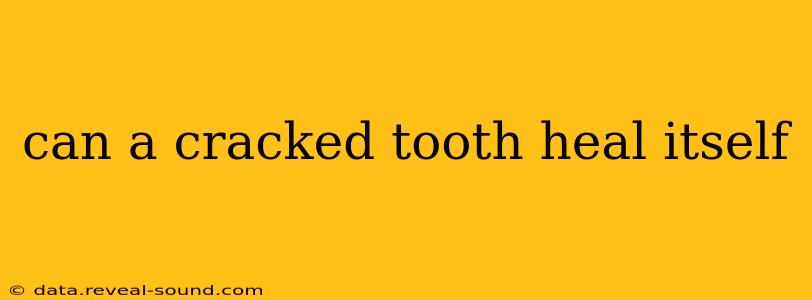Unfortunately, the simple answer is no, a cracked tooth cannot heal itself. Unlike a broken bone, which has the remarkable ability to regenerate, tooth enamel and dentin, the hard tissues that make up your teeth, lack the cells necessary for self-repair. Once a crack develops, it will not mend on its own. This is why prompt dental intervention is crucial when you suspect a cracked tooth.
What Happens When a Tooth Cracks?
A cracked tooth, often resulting from trauma or significant pressure from chewing hard foods, can manifest in various ways, ranging from a hairline fracture barely visible to the naked eye to a complete fracture splitting the tooth in two. The severity of the crack dictates the treatment required. Even small cracks can expose the sensitive inner pulp, leading to pain, infection, and further damage if left untreated.
How Can I Tell If I Have a Cracked Tooth?
Identifying a cracked tooth can be challenging as symptoms can vary widely depending on the crack's location and severity. However, common signs include:
- Sharp, shooting pain, particularly when biting down or releasing pressure.
- Sensitivity to temperature, both hot and cold.
- Lingering pain even after the stimulus is removed.
- Pain when chewing.
- A noticeable crack visible on the tooth's surface.
- Swelling or tenderness in the gums around the affected tooth.
What are the Different Types of Cracked Teeth?
Understanding the different types of cracks helps dentists determine the appropriate treatment. These include:
- Fractured cusp: A crack in the chewing surface of a tooth.
- Cracked tooth: A crack that extends from the chewing surface toward the root.
- Split tooth: A crack that splits the tooth into two or more pieces.
- Vertical root fracture: A crack that extends from the root into the gum line. This is often the most difficult to diagnose and treat.
What are the Treatment Options for a Cracked Tooth?
Treatment for a cracked tooth depends heavily on the type and extent of the damage. Options range from conservative measures to more involved procedures:
- Dental bonding: For minor cracks, a dentist may use bonding material to seal the crack and protect the tooth.
- Crown: A crown is a protective cap placed over the entire tooth to restore its shape and strength. This is often necessary for more significant cracks.
- Root canal: If the crack extends into the pulp (the inner part of the tooth), a root canal may be necessary to remove the infected pulp, prevent further damage, and save the tooth.
- Extraction: In severe cases, such as a vertical root fracture or a tooth that's severely damaged and beyond repair, extraction may be the only option.
How Can I Prevent a Cracked Tooth?
Preventing cracked teeth involves mindful habits:
- Avoid biting down on hard objects: This includes ice, hard candy, and nuts.
- Wear a mouthguard: If you play contact sports or grind your teeth (bruxism), a mouthguard can offer crucial protection.
- Practice good oral hygiene: Regular brushing, flossing, and dental checkups are essential for maintaining healthy teeth and gums.
Will a Cracked Tooth Cause Infection?
Yes, a cracked tooth can absolutely cause an infection. The crack can provide an entry point for bacteria to reach the tooth's pulp, leading to an abscess (a pus-filled pocket). This infection can spread to the surrounding tissues, causing pain, swelling, and even more serious health complications.
Can a Cracked Tooth Be Fixed Without a Root Canal?
Sometimes. The need for a root canal depends on the depth of the crack. If the crack remains superficial, without reaching the pulp, procedures like bonding or placing a crown can repair the tooth without requiring root canal therapy. However, if the crack involves the pulp, a root canal is typically necessary.
Can a Dentist Fix a Cracked Tooth?
Yes, dentists are highly skilled in diagnosing and treating cracked teeth. The sooner you seek professional help, the better the chances of saving the affected tooth. Early detection and treatment can significantly improve the prognosis and prevent more extensive and potentially costly procedures later. Delaying treatment can lead to irreversible damage and potentially the loss of the tooth.
Remember, this information is for educational purposes only and does not constitute medical advice. Always consult with a qualified dentist for diagnosis and treatment of any dental concerns.
